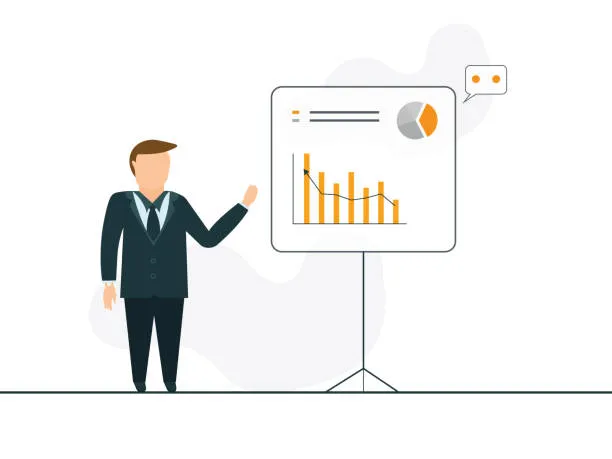If you’re interested in How do management accountants view cost, what the typical work process is, and what companies are doing to keep costs down, you’ll want to read this article.
We explore the different ways in which costs can be planned and how accounting professionals can stay on top of things when it comes to costs.
What Do Management Accountants Do?

Management accountants are responsible for managing and assessing the financial performance of businesses. They develop and maintain accurate financial records, identify and assess financial risks, and recommend appropriate courses of action to keep businesses healthy and profitable.
Management accountants are employees of accounting firms who help their clients, companies, and organizations understand and manage their finances.
They work with a variety of different clients to help them make informed financial decisions. In addition, management accountants create and maintain financial records for their clients.
Some key duties of management accountants include preparing financial statements and audits, helping to keep tabs on expenses, and creating budgets.
They also provide guidance to their clients on ways to improve their financial performance.
- In order to be qualified as a management accountant, individuals must have a degree in accounting or a related field and pass a rigorous exam.
- Management accountants are individuals who help businesses understand and manage their costs. They use a variety of techniques to do this, including analyzing financial data, performing cost analysis, and preparing financial statements.
- They also advise businesses on how to best use their resources and make informed decisions about future investments.
- Management accountants are essential to the running of any business. They work with managers to help them make informed decisions and ensure that expenses are being used in the most effective way possible.
Additionally, management accountants provide an overview of financial statements and help to identify potential problems.
Management accountants are professionals who help businesses plan, budget, and control overhead costs. They may also help companies calculate profits and losses. Management accountants use a variety of accounting tools to analyze data and make recommendations to their clients.
Management accountants are responsible for helping businesses make informed decisions about their finances. They use a variety of techniques to calculate how much money a company can afford to spend and where it should be spent.
They also help companies understand how their products and services are affecting their bottom line.
Management accountants typically have a bachelor’s degree in accounting or business administration. They may also have experiences in other fields, such as finance or accounting.
They typically work in private businesses, but they may also work for government agencies or nonprofit organizations.
What Is the Most Important Role of Management Accounting?
Management accountants play a critical role in ensuring that businesses operate within budget. They ensure that expenses are properly allocated, and that planned expenditures are realistic.
In addition, management accountants help to ensure that profits remain high and that the company remains profitable over time.
What Are the Different Types of Management Accounting?
There are two main types of management accounting: financial accounting and performance accounting.
Financial accounting focuses on tracking and reporting financial transactions, while performance accounting focuses on measuring how well a company is performing relative to its goals.
How Do Management Accountants Work with Executives?
Management accountants work closely with executives to help them make informed decisions about business operations. They also provide advice on how to manage finances in order to achieve company goals.
Finally, management accountants work with executive teams to create budgets and plan future expenditures.
How Do Management Accountants Deal with Business Law?

Management accountants are often required to follow company policies and procedures. They may be asked to prepare financial reports of a business’s performance, including profit and loss statements, balance sheets, and income statements.
In the United States, however, accountants are not required by law to provide complete financial information.
How Do Management Accountants Help Executives?
The main jobs of management accountants include:
- Monitoring the financial health of a company through regular reviews and reviews of budgets.
- Helping executives manage expenses in order to meet goals or objectives
- Creating reports needed for executive meetings.
- Working with executives and the CFO on strategic planning for the future.
How Are Management Accountants Effective Mentors?
Management accountants are excellent mentors because they:
- Have a solid understanding of accounting principles.
- Are trained to work with executives and their financial information.
- Understand the company’s overall goals and objectives.
- Can help a company achieve its goals efficiently and effectively, which is something that all great CFOs do.
Where Do Management Accountants Work?
Management accountants can be found in many different fields, including accounting firms, law firms, management consulting firms, government offices, and healthcare offices.
How Do You Become a Management Accountant?
To become a management accountant, you must have at least an associate degree in accounting or computer science.
You should also have at least five years of experience as an accountant or computer programmer before attempting to be hired as a management accountant. management accountants.
What Is an Example of Managerial Accounting?
An example of managerial accounting is when a business decides how to allocate its resources among different products. For instance, a business might decide to produce more of one product in order to increase its profits, or it might choose to produce fewer products in order to save on costs.
A great example of managerial accounting is when a company decides to increase its advertising budget.
The cost of the advertising will be divided among the departments that were involved in creating and running the ad campaign, such as design, production, and marketing.
Each department will then be responsible for reporting its costs back to the management team. In this way, the management team can see how their spending affects the overall profitability of the company.
An example of managerial accounting is a company’s decision to produce a new product. The cost of the new product must be calculated, and the decision to produce it must be justified.
Management accountants use a variety of methods to measure and track costs. One common method is budgeting.
Managers use budgets to track the progress of their business goals. Budgets also help managers identify areas of need and where they can make cuts to improve efficiency.
An example of managerial accounting is when a company calculates how much profit it has made for each division or product line. This figure can help the company make decisions about which divisions to expand or reduce, or what new products to develop.
One example of managerial accounting is overseeing the budget and financial planning for a business. This includes creating and executing plans to meet future financial goals, as well as monitoring actual performance against plan.
Managers also use accounting data to make decisions about where to allocate resources and how to price products.
Management accountants often use three methods to analyze the financial performance of a company: operating income, operating margin, and return on equity.
What Types of Accountants Make the Most Money?

There is no one answer to this question as different management accountants view money in different ways. However, some of the most lucrative careers for management accountants include auditing, financial analysis, and cost accounting. Additionally, many management accountants find work as consultants or in private industry.
Management accountants (MA) often have the highest salaries of all accounting professionals. In fact, according to the 2018 Salary Report from Accounting Principals International (API), MA salaries averaged $99,600 nationwide. So what are the factors that lead to high pay for this profession?
First and foremost, MA’s typically have a blend of accounting experience, business knowledge, and skillset that puts them in high demand by companies.
They also typically hold advanced degrees in accounting or related disciplines, which gives them a leg up on their competition. Finally, MA’s are often sought out for their expertise in financial analysis and reporting.
So if you’re looking for an accountant with experience in specific areas of accounting or if you need help with financial reporting, a MA is likely the right choice for you.
Management accountants are in high demand these days because they have the ability to see all aspects of a business and make critical decisions. They are paid well for their skills, with salaries ranging from $75,000 to $160,000.
These types of accountants who make the most money are as follows:
- Certified public accountants (CPAs): Certified public accountants are the most in-demand type of accountants, with salaries averaging $130,000. They are responsible for auditing businesses and issuing financial reports.
- Tax accountants: Tax accountants work with businesses to prepare and file taxes. Their salaries average about $80,000.
- Business analysts: Business analysts work with businesses to develop and execute plans and strategies. Their salaries average about $77,500.
- Internal auditors: Internal auditors investigate possible financial irregularities within a company and issue reports on their findings. Their salaries average about $67,500.
- Financial analysts: Financial analysts help businesses assess their financial condition and make recommendations for growth or improvement. Their salaries average about $62,500.
- Customer-service representatives: Customer-service representatives help businesses meet customer needs and resolve problems. Their salaries average about $38,000.
- Sales representatives: Sales representatives help businesses connect with customers to sell a product or service. Their salaries average about $48,000.
- Computer programmers: Computer programmers write codes that run computer software and programs for specific tasks. They may also design websites, software programs, and mobile applications. Their salaries average about $61,000.
- Financial planners: Financial planners help individuals and businesses monitor their financial status over time, prepare financial budgets and make recommendations on investments or savings plans.
- 1Human resources specialists: Human resources specialists assist companies to manage the recruitment and retention of employees by providing training, coaching, benefits assistance, and other related services to employees at all levels of an organization’s hierarchy in order to meet organizational goals.
- Marketing specialists: Marketing specialists assist organizations to develop products or services that meet the needs of target audiences. They also ensure customers are pleased with the delivery of a product or service.
What Are the Five Major Types of Accounting?
There are five major types of accounting:
- Financial accounting -Financial accounting is the process of recording, classifying, and summarizing financial transactions to provide information that is useful in making decisions about a company’s finances.
- Management accounting-Management accounting is the use of data from financial accounting to help managers make strategic decisions about their businesses.
- Cost accounting- Cost accounting is the process of estimating the actual costs of producing a good or service and then determining how much revenue to generate to cover those costs.
- Production accounting- Production accounting is the process of estimating how much products or services will be produced during a given period and then allocating resources (people, machines, materials) to produce the required amount.
- Expense accounting-Expense Accounting is the process of calculating and reporting expenses associated with running a business. The purpose of any kind of accounting system is to make some sense of the information coming in.
Is Management Accounting a Good Career?
A lot of people view management accounting as a good career because it offers a lot of opportunities for advancement. Management accountants are typically in charge of financial reports and budgeting. They also work with customer service to make sure that companies are meeting their financial goals.
If you’re considering a career in management accounting, you may be wondering whether it’s a good choice. After all, many people view management accounting as a difficult and mind-numbing field.
Is that really the case? In this blog post, we’ll explore the pros and cons of management accounting as a career, and help you decide whether it’s the right fit for you.
In management accounting, individuals use data to make decisions that affect a company’s profitability and efficiency. The field is highly competitive and requires extensive knowledge in financial accounting, budgeting, and forecasting. However, management accountants enjoy a high degree of job satisfaction.
Management accounting is a popular and well-paying career, but
There are some important things to keep in mind when considering this field.
- First, management accounting is about analyzing data and making decisions based on that information. This can be very challenging, and it’s not for everyone.
- Second, management accounting is a highly technical field, and you’ll need strong math skills to succeed.
- Third, management accounting is complex and demanding, so you’ll need to be able to work quickly and efficiently.
- Finally, management accounting is a rapidly growing field, so if you’re interested in it is prepared to keep up with the latest trends.
The field of management accounting is a good career for someone who is able to handle numbers and has an attention to detail. A management accountant must be able to think critically and solve problems. They must also be able to work well with others in a team setting.
Management accountants are typically seen as a good career choice for people who have a math and accounting background. In addition, good management accountants need to have strong communication and interpersonal accounting skills.
How to Become an Accountant or Auditor About this section

Management accountants typically view cost as a critical factor in any business operation. Cost accounting helps businesses identify, measure, and manage expenses so they can make informed decisions regarding where to allocate resources.
Additionally, cost accounting can help businesses gauge their performance relative to competitors.
Management accountants and auditors rely heavily on cost accounting concepts to keep track of expenses and profits.
Cost accounting is a process used by businesses to determine the actual direct costs of producing goods and services. This information is then used to make informed decisions about how to allocate resources and manage finances.
In order to be an effective manager, it is important to understand how cost accounting affects your business. A comprehensive understanding of the concepts behind cost accounting will help you make smart decisions about budgeting, pricing, production, and investment.
Below are some key points to keep in mind when performing cost accounting:
- Cost Accounting Is a Process Used by Businesses To Determine The Actual Costs Of Producing Goods And Services
- Cost Accounting facilitates smarter decision making by allowing managers to identify areas where they can reduce costs or increase production
- Cost Accounting Allows Managers To Evaluate How Well They Are Managing Their Financial Resources
- Cost Accounting Allows Managers To Identify What Factors Have Contributed More To The Firm’s Financial Situation
- Cost Accounting Is a Process Used By Businesses To Ensure That They Are Producing At the Right Prices and Key Points To Remember:
The Difference Between Cost Accounting and Financial Accounting
Cost Accounting
- Costing Is The Process Businesses Use To Determine How Much Money They Have Spent To Produce Goods or Services
- When It Comes To Reporting, All Businesses Must Report Their Total Budgeted Costs And The Actual Purchases and Sales
- Businesses Must Report Their Net Income Or Loss
- There Are Two Types Of Accounting systems: Cash Flow-Based And Trial BalanceBased
- In A Cash Flow BasedModel, Companies Need To Report How Much Profit Has Been Discovered From Actual Operations
- In a Trial Balance-BasedAccounting System, Companies Need To Identify Which Accounts Are Positive ( Cash) And Which Are Negative (Purchases, Sales, and Interest Income)
- Accounting Information Is Used To Determine Whether A Company Has Been Successful Or Unsuccessful
- When Accountinginformation Is Not Accurate, It Can Affect Monetary Earnings
- The Accounting System That Companies Use To Report Their Financial Condition Is Called Bookkeeping
- In Bookkeeping, Companies Take Notes Of Actual Events
- For Cash Flow Based Accounting Systems, Accountants Use Several Standard Accounts
- For Trial Balance-Based Accounting Systems, Accountants Use Specific Numbers To Identify Each Asset
- All Businesses Need To Record Their Assets As Well As The Liabilities
Financial accounting
- The process of recording transactions and other business events
- The financial reports that a company creates to show its finances
- The part of the accounting system that requires a professional bookkeeper
- A comprehensive set of rules and procedures for recording, paying, and reporting all financial transactions
- Accounting covers the full wide range of financial activities from day-to-day operations to long-term investments
- Financial accounting is the area in which economic facts are translated into information useful in planning, controlling, and obtaining resources
- In accounts payable (AP), an expense is paid on credit by crediting the account receivable balance
- In accounts receivable (AR), income is credited to an asset
- When cash flows vary due to changes in sales or
What are the best Accounting Certifications?

Management accountants have a variety of accounting certification options to choose from, depending on their area of focus. Here are four of the most popular management accounting certification options:
AIA/CIMA – The American Institute of Certified Public Accountants (AIA) offers the Certified Management Accountant (CMA) credential. Candidates must pass an exam that covers financial reporting and financial analysis methods.
CPA – The American Institute of CPAs (AICPA) offers the Chartered Professional Accountant (CPA) credential. Candidates must pass an exam that covers financial reporting and auditing methods.
CMA/CSA – The Canadian Institute of Chartered Accountants (CICA) offers the Certified Management Accountant (CMA) and Certified Service Auditor (CSAs) credentials. Candidates must pass an exam that covers financial reporting and auditing methods.
FCPA – The Financial Industry Regulatory Authority (FINRA) offers the Financial Controller Certification Board (FCBCB) certification. Candidates must pass an exam that covers financial reporting and controls functions.
CPA – The American Institute of Certified Public Accountants (AICPA) offers the Certified Public Accountant (CPA) credential. Candidates must pass an exam that covers financial accounting and auditing principles.
CMA/CSA – The Canadian Society of Business Accountants and Secretaries (CSBAS) offers the Chartered Accountant (CA) and Chartered Secretarial Science (CSA) credentials.
Candidates must pass an exam that covers accounting principles, business law and ethics principles, financial reporting, taxation, and government practices.
The Canadian Society of Business Accountants and Secretaries (CSBAS) offers the Chartered Accountant (CA) and Chartered Secretarial Science (CSA) credentials.
CPA/MA/CMA – Most large public accounting firms in North America also offer a Master’s of Accounting degree program or post-graduate certificate in management accounting. This is one of the more expensive ways to obtain your strategic management accounting: how far have we come in 25 years?
One of the most important aspects of any business is its cost. Management accountants are responsible for ensuring that a company’s costs are within budgeted limits and that the company is making money the right way.
In recent years, management accountants have made great strides in their understanding of cost. They have developed methods to more accurately estimate costs, and track the impact of changes in prices on a company’s profitability.
As a result, management accountants are able to make better decisions about how to allocate resources within a company and identify areas where costs can be lowered.
In a recent article by Forbes contributor, John Bogle, he discusses the historical significance of management accounting.
He begins by discussing how management accountants view cost. In essence, management accountants view cost as a means to an end. They use it as a tool to measure the effectiveness of their business strategies.
Bogle goes on to discuss how management accounting principles have changed over the years. He points out that in the past, managers were not as focused on financial performance. Instead, they were more concerned with running the business in a sustainable way.
This was largely due to the fact that businesses were much smaller in the past. As businesses grew larger and became more complex, however, financial performance became increasingly important.
- Today, management accountants continue to use cost as a tool to measure the effectiveness of their business strategies. However, they also take into account other factors such as profitability and market share. In short, management accountants have come a long way in terms of their understanding of cost.
- One of the most important aspects of any business is calculating and managing costs. Cost management is an essential part of any business strategy.
- Management accountants typically use three methods to calculate and manage costs: budgeting, performance measurement, and cost control.
- Budgeting is the first step in cost management. Management accountants use a project budget to plan how much money the company will spend in each category over a specific period of time. This helps managers understand how much money they have available to spend on different project forecasts.
- Performance measurement is a second method used by cost management accountants to calculate and manage overhead costs. Performance measurement involves monitoring how well a company achieves its goals in relation to its budgeted amounts.
- This information can help managers make better decisions about which projects to pursue and how much money to allocate to them.
- Cost control is the third method used by management accountants to calculate and manage costs. Cost control involves using measures such as project budget, performance measurements, and forecasts to prevent or reduce spending on unneeded items.
- Cost control helps managers stay within their financial limits while still achieving their corporate objectives.
FAQ {Frequently Asked Question}
How do management accountants view cost?
If you’re interested in How do management accountants view cost, what the typical work process is, and what companies are doing to keep costs down, We explore the different ways in which costs can be planned and how accounting professionals can stay on top of things when it comes to costs.
What Do Management Accountants Do?
Management accountants are responsible for managing and assessing the financial performance of businesses. They develop and maintain accurate financial records, identify and assess financial risks, and recommend appropriate courses of action to keep businesses healthy and profitable.
Management accountants are employees of accounting firms who help their clients, companies, and organizations understand and manage their finances.
What Is the Most Important Role of Management Accounting?
Management accountants play a critical role in ensuring that businesses operate within budget. They ensure that expenses are properly allocated, and that planned expenditures are realistic. In addition, management accountants help to ensure that profits remain high and that the company remains profitable over time.
What Is an Example of Managerial Accounting?
An example of managerial accounting is when a business decides how to allocate its resources among different products. For instance, a business might decide to produce more of one product in order to increase its profits, or it might choose to produce fewer products in order to save on costs.
A great example of managerial accounting is when a company decides to increase its advertising budget.
What Types of Accountants Make the Most Money?
There is no one answer to this question as different management accountants view money in different ways. However, some of the most lucrative careers for management accountants include auditing, financial analysis, and cost accounting. Additionally, many management accountants find work as consultants or in private industry.
The Difference Between Cost Accounting and Financial Accounting
Cost Accounting
Costing Is The Process Businesses Use To Determine How Much Money They Have Spent To Produce Goods or Services
When It Comes To Reporting, All Businesses Must Report Their Total Budgeted Costs And The Actual Purchases and Sales
Businesses Must Report Their Net Income Or Loss
Financial accounting
The process of recording transactions and other business events
The financial reports that a company creates to show its finances
The part of the accounting system that requires a professional bookkeeper
A comprehensive set of rules and procedures for recording, paying, and reporting all financial transactions
What are the best accounting certifications?
Management accountants have a variety of accounting certification options to choose from, depending on their area of focus. Here are four of the most popular management accounting certification options:
AIA/CIMA – The American Institute of Certified Public Accountants (AIA) offers the Certified Management Accountant (CMA) credential. Candidates must pass an exam that covers financial reporting and financial analysis methods.
CPA – The American Institute of CPAs (AICPA) offers the
Related Term
- How do management buyouts work?
- How Can Management Reduce Resistance To Change
- Why do business need finance?
- Management uses method of observation
- Management is Linked To Information By
- Why Did Earth Log Go Out Of Business?
- Adroit Marketing INC
- A Dependable and Appealing Way for Managers
- Why Do Businesses Use Letterheads And Logos?
- Which Resource Management Task Establishes?
- Which Best Compares And Contrasts Management And Marketing?
- What is Financial Strategy | Financial Management
- Who is the principal federal official for domestic incident management?
- Which Resource Management Task Deploys or Activates Personnel And Resources
- Which Type of Business Is Strong Steel Manufacturers & Structural Steel
- How To Start Mustard Oil Business Plan
- What Is B2k Marketing | B2k Media Marketing?
- What Is B2k Marketing | B2k Media Marketing?
- What Type of Agreement Is Used To Form A Partnership Business Partnership Agreement?
- How Can The Extensibility of A Platform Benefit a Business?
- What Kind of Business Organization Are Caleb And Anna Operating Under Now?
- What Must An Entrepreneur Assume When Starting A Business Entrepreneurship?
- How Can Formal Business Documents Help Managers Solve Problems Resources
- How is Hotel Management as a Career?
- How Does Management Increase Efficiency
- Why business is considered as an economic activity
- What who when project management
- Business And Society Otterbein Courscicle
- How To Get An FFL Without A Business?
- What is Surrogate Advertising Strategy?
- How To Start A Tumbler Business?
- Which of The Following Statements Is True About Business Intelligence
- Why Are Slide Presentations Universal In Business Environments?
- Business Yoga In Astrology
- How To Play Business Game?
- Understand The Umbrella Branding
- Which Helps Enable An Oligopoly To Form Within A Market?
- What is Undifferentiated Marketing | Undifferentiated Marketing Strategy?
- How To Use Rural Marketing Strategies To Increase Your Business Growth
- International Marketing Research
- Features Of International Marketing
- Functions of Marketing
- Scope of Marketing Research
- What do you understand by Surrogate Marketing
- Marketing Fundamentals
- 5 Ways to Use How Can Performance Planner Serve Your Business to Achieve Your…
- Nature And Significance of Management
- Marketing Intelligence and Planning
- What Is Service Marketing Triangle
- 5 Key Facts You Need To Know About UniLink Marketing LLP
Conclusion of How do management accountants view cost
The management accountant’s view of cost is important not only because it affects how the organization spends its money, but also because it informs decisions about how to run the business.
When managers make decisions about what to produce or where to allocate resources, they need to take into account both the short- and long-term costs of those decisions.
‣ I hope friends, through this article, I have given you information about How do management accountants view cost You must have got the information. So share your suggestions with us.
Like this information Or have Something to share!
















